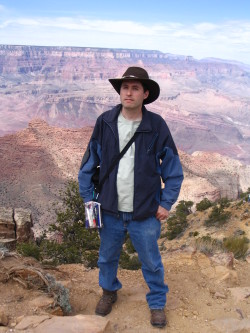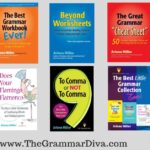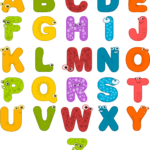
Let me say this up front: you can be a hero. I’d like to play the role of Splinter or Yoda here and kick you in the right direction.
First, though, what does “hero” even mean?
In 2008, Philadelphia Weekly called me an “American hero.” The New Yorker pondered whether I was a “literary folk hero.”
I hadn’t saved anyone from a raging river or fiery car wreck. I hadn’t passed any bold piece of progressive legislation. I’d just driven around the United States with a couple of friends on a quest to fix typos in public signage. (The journey culminated in a book, The Great Typo Hunt.)
Certainly I was playing at being a hero. I’d been writing mock-bombastic blog entries to chronicle my typo-hunting adventures. And in New Mexico, I picked up a cowboy hat that closely resembled the fedora worn by one of my favorite movie heroes, Indiana Jones.
I had what you might call heroic aspirations. I thought my mission might make a difference. Maybe not as grand a difference as keeping the Ark of the Covenant and the Holy Grail out of the hands of the Nazis. But, you know, a difference. Maybe I could help improve people’s spelling and grammar, and inspire them to proofread their work.
That’s not really being a hero, though, is it?
Or might heroism be easier to reach than we even realize? Let’s turn to a typo-hunter’s most constant friend: the dictionary.
According to the American Heritage Dictionary (and leaving aside definitions regarding mythology, protagonists, and sandwiches), a hero is:
- A person noted for feats of courage or nobility of purpose, especially one who has risked or sacrificed his or her life.
- A person noted for special achievement in a particular field.
Definition 1 conveys that classic sense of service and sacrifice. But definition 2 is interesting: special achievement in a particular field. That sounds like something any of us could achieve if we worked hard enough at it.
Let’s call striving for that “special achievement” purpose. We don’t want to lose the important idea of service to others in definition 1, though. So let’s combine them.
Here’s a working definition for a hero: someone noted for both extraordinary purpose and service.
So. You don’t have to dash into a burning building to be a hero. You don’t even have to be able to dash at all. That’s a relief. You just need to dedicate yourself to something great, and to help others as well. All of us can achieve those things. All of us.
What’s your purpose, then? Maybe it’s typo-hunting. If you’re reading this blog, chances are your purpose is something language-related. You’re an English teacher. Or a copy editor. Or a technical writer.
Or maybe your purpose isn’t your day job, after all. You could be fixated on a creative goal: fiction, jazz composition, charcoal drawing. Me, I’ve taken my hero obsession into novel writing, where my fictional counterparts struggle against impossible odds to achieve great things.
Whatever your purpose is, follow it with commitment and persistence. Put in your 10,000 hours of deliberate practice, as Malcolm Gladwell advises. If you’re devoting consistent time and effort to your purpose, you can count yourself a hero.
Just don’t forget about the service side as well. The two sides of heroism should balance out. A hero focused on purpose without service risks becoming a villain. (Conversely, a hero focused on service without purpose risks becoming a martyr instead.)
This is more than just rhetoric. Consider how one side feeds the other. You can be of greater service to others only with greater skills at your disposal. And you can achieve greater things only with a greater network of friends and supporters.
For example, if you’re a freelance editor, let’s say you offer to clean up the copy on a local nonprofit’s website pro bono. You might just be opening the doors to new clients (friends and colleagues of the people who work at that nonprofit). As your business increases, you become a master of line editing and a virtuoso of typo-hunting. Suddenly you’re asked to join a panel of experts to help shape the next edition of the Chicago Manual of Style. And the heroic cycle continues.
If you’re a fiction writer, helping other people in the author community (by giving feedback, spreading word about their books, etc.) doesn’t just benefit them. It also benefits you, by increasing your reputation as an author who genuinely cares about other authors. When you eventually need a favor yourself—more reviews of your work, say, or a place to crash in Seattle during your book tour—you’ll be more likely to find the help you need.
(And that help might not even be from the same people you helped originally. Crowds form around those with a mindset of generosity, as Wharton professor Adam Grant’s research suggests.)
Then, once you’ve reached a higher level of skill and status as an author, your power to help others increases. Your enthusiastic blurb on somebody else’s book cover carries far more influence. Your free local workshop on fiction writing becomes a huge help for all who attend, because you’ve been there and you know what you’re talking about. And the heroic cycle continues.
I mean, Indiana Jones wasn’t in it just for the glory. He wanted to get those artifacts into museums.
So yeah, maybe I wasn’t exactly a hero during the Great Typo Hunt. But I’d like to think I was headed in the right direction.
These days my mission is to become a hero in the world of indie novels. I decided to stop relying on the approval of the traditional publishing establishment and strike out on my own. My sci-fi gaming adventure novel Player Choice came out earlier this year. And starting in September, I’m releasing a serialized horror novel, The Pseudo-Chronicles of Mark Huntley, in four parts.
Both stories feature a main character trying to accomplish something daunting in the face of vast forces of indifference and opposition. The parallels to indie authorship itself have not been lost on me. So far I think you can count my total novel sales on all your fingers and only some of your toes.
But I’ve been learning a lot along the way. I’ve been thinking a lot about purpose and service. I’ve decided that right now is pretty much the best time there is to reach for heroism.
I hope you’ll have the same realization. If you need further inspiration for becoming a hero in your field or area of passion, please drop me a line at jeffdeck@jeffdeck.com. I’d love to hear about your challenges and aspirations.
You can also consider subscribing to my e-newsletter for a weekly dose of heroic musing (not to mention updates about geeky books).
I’ll leave you with this quote from musician and writer Gerard Way: “Heroes are ordinary people who make themselves extraordinary.” Keep at it!
Jeff Deck is a writer and editor who lives in Maine. His speculative fiction includes the sci-fi gaming adventure Player Choice and the forthcoming serialized horror novel The Pseudo-Chronicles of Mark Huntley. He is also the co-author of The Great Typo Hunt: Two Friends Changing the World, One Correction at a Time (with Benjamin D. Herson).
Note from The Grammar Diva: I first heard about the Great Typo Hunt right after it happened and the book came out. I was obviously enthralled with the whole idea! When Jeff and his co-author Benjamin Herson were on their book tour, I went to see them at Borders (boo-boo, miss it) in San Francisco at the Stonestown mall. I wanted to be them! At least they are now my Facebook friends, and I have this wonderful blog post — and Jeff was kind enough to write the blurb that is on the front cover of my new workbook.
Plugs from The Grammar Diva: The Best Little Grammar Book Ever and Correct Me If I’m Wrong are now on sale for back to school on Kindle. They are each $3.99 instead of their usual $8.99 for a limited time. And The Best Grammar Workbook Ever is now available as an ebook from Kindle, Kobo, Smashwords, and very soon ibooks and Nook — and all the others.



This is a wonderful post. I’m not that interested in the hero label–in movies, the heroes never refer to themselves as heroes and would probably laugh if you called them heroic. But Jeff’s case for reaching beyond ourselves is strong and inspiring.
I also completely support his effort to promote indie publishing. We do not need gatekeepers–traditional publishers–who often merely support their in-group as opposed to finding the best books. (Doris Lessing conducted a fascinating experiment about this.) The indie publishing movement owes a lot to Amazon, so while I too enjoyed visiting Borders, its demise is more than compensated by the fact that now anyone can publish a book and put it in front of the entire world of readers.
Thanks for the comment. It was a great post! I have put six books out, indie published by my own publishing company. I am all for indie publishing!
Thanks for your thoughts, Murray! I’m pretty sure indie publishing is the future– a difficult road, to be sure, but one that’s open to all. Plus, being able to control every aspect of your own books is a huge benefit.